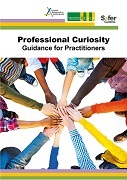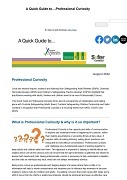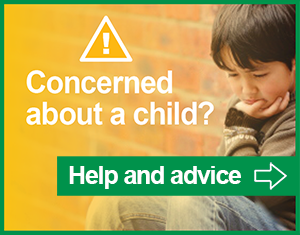Professional Curiosity
Local and national reports, research and learning from Safeguarding Adult Reviews (SARs), Domestic Homicide Reviews (DHRs) and Children's Safeguarding Practice Reviews (CSPRs) highlight that practitioners working with adults, families and children need to be more Professionally Curious.
What is Professional Curiosity and why is it so important?
Professional Curiosity is the capacity and skills of communication to explore and understand what is happening for a person, rather than making assumptions or accepting things at face value. It requires skills of looking listening, asking direct questions and being able to hold difficult conversations. Professional Curiosity and challenge are a fundamental aspect of working together to keep adults and children safe from harm. This approach is important in helping to identify abuse and neglect which can be less obvious and can ensure that the right information is gathered and shared to assess both needs and risks. Being professionally curious is necessary to fully understand a situation and the risks an individual may face, which are not always immediately obvious.
Being more curious as professionals and 'digging deeper' into areas where there is little, or no information will help to inform assessments and empower you to influence key moments of decision making to reduce risks for children and adults. Escalating concerns that could cause drift, delay and a shift in focus from the child's or adult's best interests should be embraced and seen as effective care.
Professional Curiosity Lunch and Learn Session
Please access the link below to a recorded learning session (YouTube video) about professional curiosity.
Professional Curiosity Multi-Agency Guidance for Practitioners

Quick Guide to Professional Curiosity

